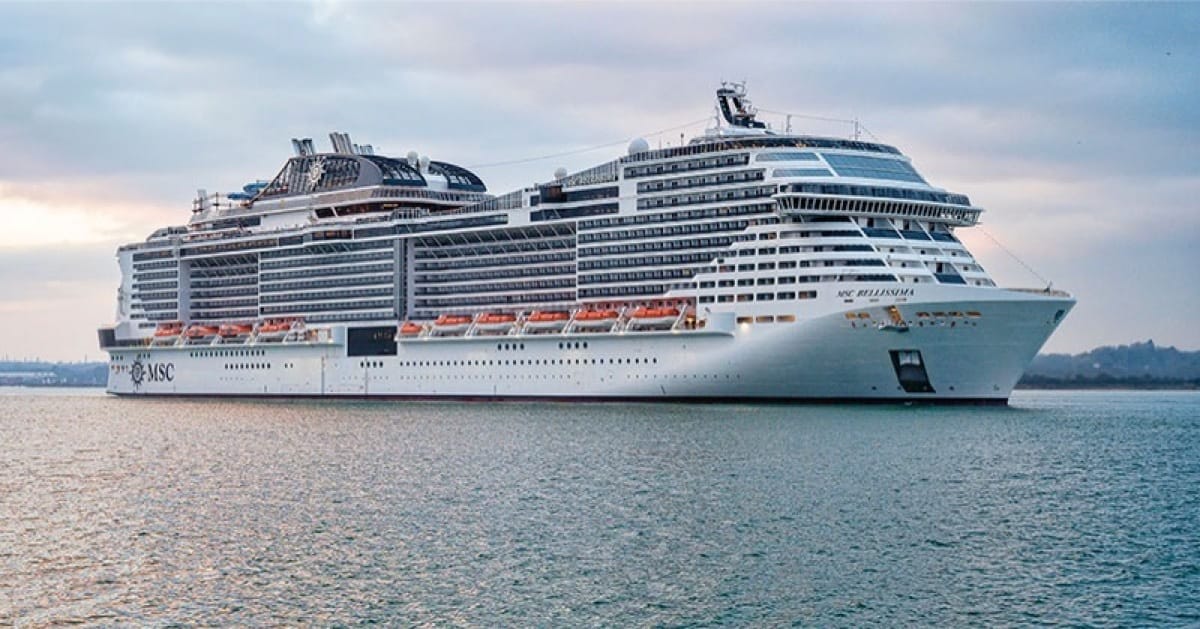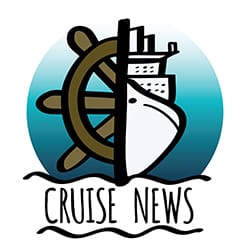MSC Cruises targets 15% emission reduction by 2026

MSC Cruises has announced plans to reduce its fleetwide emissions by up to 15% by 2026, leveraging a new itinerary planning optimization tool known as OptiCruise. The development, achieved in collaboration with OPTIMeasy, is aimed at enhancing efficiency while ensuring guest satisfaction remains intact.
The OptiCruise tool utilizes a sophisticated mathematical model that takes into account various factors related to MSC Cruises’ itinerary planning. The new approach is a significant shift from the conventional method that primarily prioritizes destination appeal for travelers.
Under a prototype trial conducted with the MSC Bellissima, the new system proved effective over a 12-month period while navigating between 17 ports across the Mediterranean Sea. As described by Michele Francioni, MSC Cruises' Chief Energy Transition Officer, this technology is pivotal for optimizing itinerary decisions that result in lower emissions.
The anticipated fuel savings from using OptiCruise are estimated to fall within the range of 10-15%, which aligns with the company’s broader strategic goal to achieve net-zero greenhouse gas emissions in marine operations by 2050.
The cruise industry, long criticized for its environmental impact, is now experiencing a paradigm shift, focusing on sustainability and emissions reduction. Operative efficiency is one of three critical areas MSC is emphasizing to enhance its environmental profile, alongside advancements in ship and engine technology, and the utilization of renewable fuels.
Understanding the Need for Emissions Reduction in the Cruise Industry
The cruise sector has come under scrutiny for its carbon footprint, prompting a reevaluation of operational practices. Historically, cruise companies concentrated on the allure of destinations without substantial integration of operational efficiency into their planning.
Emissions reduction is not just a regulatory necessity but a moral imperative in today's climate-conscious market. With escalating concerns regarding climate change, the cruise industry is compelled to innovate while fostering guest experiences.
The Role of Advanced Technology in Emissions Reduction
Technological advancements play a vital role in driving the cruise industry's emissions reduction efforts. Tools like OptiCruise highlight how technology can optimize resource use, leading to enhanced operational efficiency.
By calculating factors such as port call sequencing and ship speed, OptiCruise provides a data-informed approach to planning that can help reduce fuel consumption while meeting guests' itinerary expectations.
Components of the OptiCruise Tool
The OptiCruise system evaluates several key parameters to formulate efficient cruising itineraries:
- Port call sequences: Optimizing the order of stops to minimize travel distance.
- Departure and arrival times: Adjusting timings for operational efficiency.
- Ship’s speed: Evaluating optimal speed that reduces emissions.
- Destination attractiveness: Maintaining appeal while optimizing efficiency.
- Operational costs: Considering fuel, port charges, and onboard provisions.
Each of these parameters is calculated by the tool’s algorithms, which work to balance sustainability and guest satisfaction simultaneously.
MSC’s Broader Sustainability Commitment
MSC Cruises' commitment to achieving net-zero greenhouse gas emissions by 2050 is ambitious and multi-faceted. The initiative is backed by innovative technologies and a restructuring of operational practices.
The company’s efforts are anchored in three critical focus areas: enhancing ship and engine technologies, operational efficiency, and the transition to renewable fuels. Together, these factors are pivotal for achieving their long-term sustainability goals.
Investing in Future Maritime Technologies
Investment in future maritime technologies is crucial for reducing emissions in the cruise sector. Companies are innovating in fields such as fuel alternatives, enhanced propulsion systems, and energy-efficient ship designs.
MSC's alignment with the European Union’s Project CHEK signifies a dedication to exploring low-carbon shipping solutions and reducing the environmental impact of their fleet operations.
The Impact of Regulatory Frameworks
Regulatory changes are also influencing the cruise industry’s shift towards greater sustainability. As environmental regulations become more stringent, cruise lines are prompted to innovate or face potential penalties.
Compliance with these regulations not only aids in emissions reductions but also enhances the brand's reputation among increasingly eco-aware consumers.
Consumer Preferences and Market Trends
Current market trends exhibit a growing consumer preference for eco-friendly travel options. Cruise liners, including MSC, must adapt to these changing consumer expectations, emphasizing sustainability in their marketing and operational practices.
Guests are more inclined to support cruise lines that demonstrate a commitment to environmental stewardship and proactive emissions reduction strategies.
The Future of Cruising: Navigating Towards Sustainability
The future of cruising is poised at the intersection of enjoyment and sustainability. As the industry evolves, tools like OptiCruise will likely emerge as a standard for itinerary planning among leading cruise operators.
Moreover, as the market continues to demand sustainability, further innovations can be expected within this sector to address environmental challenges head-on.
Challenges Ahead for the Cruise Industry
While the initiatives by MSC Cruises and others are promising, challenges remain in the journey towards sustainability. Adjusting operations to incorporate advanced technologies requires substantial investment and commitment.
Additionally, cruise lines face external pressures, including fluctuating fuel prices and varying regulations across global markets, that can complicate their emissions reduction efforts.
Adoption Rates of Innovative Technologies
The adoption of innovative technologies is critical but can be slow and resource-intensive. Cruise lines must balance the need for immediate operational improvements with the long-term goals of sustainability.
Furthermore, integration into existing operational frameworks is necessary, which can entail retraining personnel and updating systems.
Potential for Collaboration in the Industry
Collaboration across the cruise industry could further accelerate the transition towards reduced emissions. Sharing best practices and technological innovations could create a more cohesive approach to sustainability.
Industry-wide partnerships may enhance resource efficiency and provide a collective response to environmental challenges.
Conclusion
MSC Cruises’ initiative to reduce fleetwide emissions by up to 15% by 2026 is a promising development in the voyage towards a more sustainable cruise industry. Through the implementation of the OptiCruise tool, the cruise line is making strides towards enhancing operational efficiency while catering to guests' interests.
This marks a shift in focus within the cruise sector, aiming for a balance between enjoyment and responsible travel. As technology and collaboration pave the way for innovative solutions, the future of cruising holds the potential for a significantly reduced environmental footprint.
FAQs
What is MSC Cruises’ goal for emissions reduction?
MSC Cruises aims to reduce fleetwide emissions by up to 15% by 2026 as part of its broader strategy to achieve net-zero greenhouse gas emissions by 2050.
How does the OptiCruise tool work?
The OptiCruise tool utilizes a mathematical model to analyze factors such as port call sequences and ship speed to create efficient and attractive itineraries.
What are the main areas MSC focuses on for sustainability?
MSC’s sustainability strategy focuses on ship and engine technology, operational efficiency, and the use of renewable fuels.
Why is the cruise industry under pressure to become more sustainable?
Increasing consumer awareness and stringent environmental regulations are prompting the cruise industry to incorporate sustainability into their operations.
Can collaboration enhance emissions reduction efforts in the cruise industry?
Yes, collaboration across the industry can facilitate the sharing of innovations and best practices, accelerating the transition towards reduced emissions.




